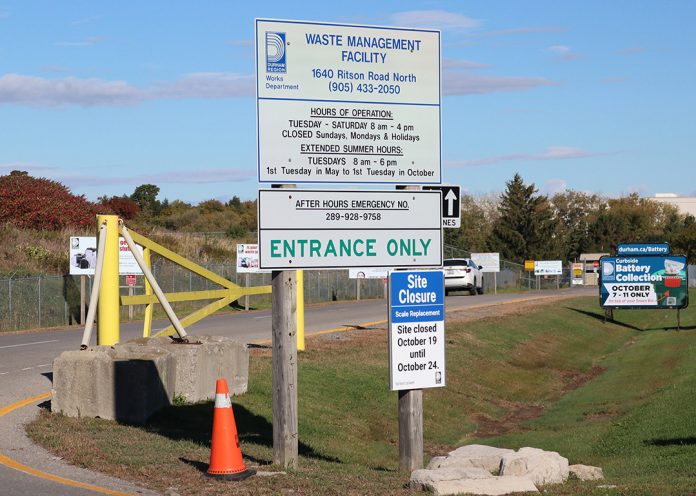For most people, keeping a conscious mind about the environment is top priority when it comes to thinking about how they dispose of their garbage.
However, many are also unaware of what happens to their trash when it leaves their sight, subconsciously hoping it will be handled properly.
For college students, especially, ensuring mindfulness towards the environment is a popular issue. According to a study conducted by Learning for a Sustainable Future, a Canadian charity dedicated to integrating sustainability education in schools, 41 per cent of students report feeling anxious and 32 per cent feel frightened about climate change.
This concern is reflected in institutions like Durham College, which, according to its website, is recognized as one of 2024’s greenest employers.
So, what does that mean when it comes to waste management at the school? Bart Lucyk, Manager of Facilities and Ancillary Services, outlined Durham College’s practices and how they align with environmental goals.
“Everything we use is biodegradable,” Lucyk explained, detailing the school’s strategy to reduce the environmental impact of waste. He highlighted a communal garbage collection system to reduce the number of garbage bags used. “You don’t have to change the bags out in every classroom,” he said.
On a larger scale, the Region of Durham also seeks to project an image of environmental sustainability. Their waste management programs feature new initiatives aimed at educating residents about environmental mindfulness when it comes to disposing of waste.
Lipika Saha, Manager of Waste Services at the Region of Durham, said promoting proper waste management practices is a top priority for the region.
“We have a strong promotion and education (program) to teach residents,” Saha said. She added that the region promotes a “circular economy” when dealing with recyclables.
Saha also shared details of a new pilot project being implemented at a closed Oshawa landfill. The project uses a bio system aimed at converting the methane component of landfill gas into carbon dioxide using compost bacteria. “The main objective of this pilot is to ascertain the effectiveness of these biosystems in reducing the greenhouse gas footprint from the regions landfills,” she said.
The region also has an organics program for single-family residential households, and in 2025, plans to expand this to multi-residential homes. “This will provide the residents in these buildings a full suite of waste diversion programs and significantly increase waste diversion,” said Saha.
Both the region and the college work together to ensure waste management practices are being supervised properly according to Amanda Blenkhorn, Durham College’s Director of Ancillary Services. “Our facilities team is currently working with the region directly on ways we can reduce our impact,” she explained.
Students can reduce their environmental impact by being mindful about their waste and making thoughtful choices.
“Everyone can be more mindful, not just students, but I think it’s important to make the right choices,” she said. “It can be as simple as bringing a litterless lunch and making better choices with what they purchase.”
New green initiatives, such as the Green Impact team, will also return to the college after a hiatus during the COVID-19 pandemic. The main goal of this team is to promote green-minded practices across campus.
“We are dealing with e-waste and launching a new initiative to divert frequently used items from landfill,” said Blenkhorn.




